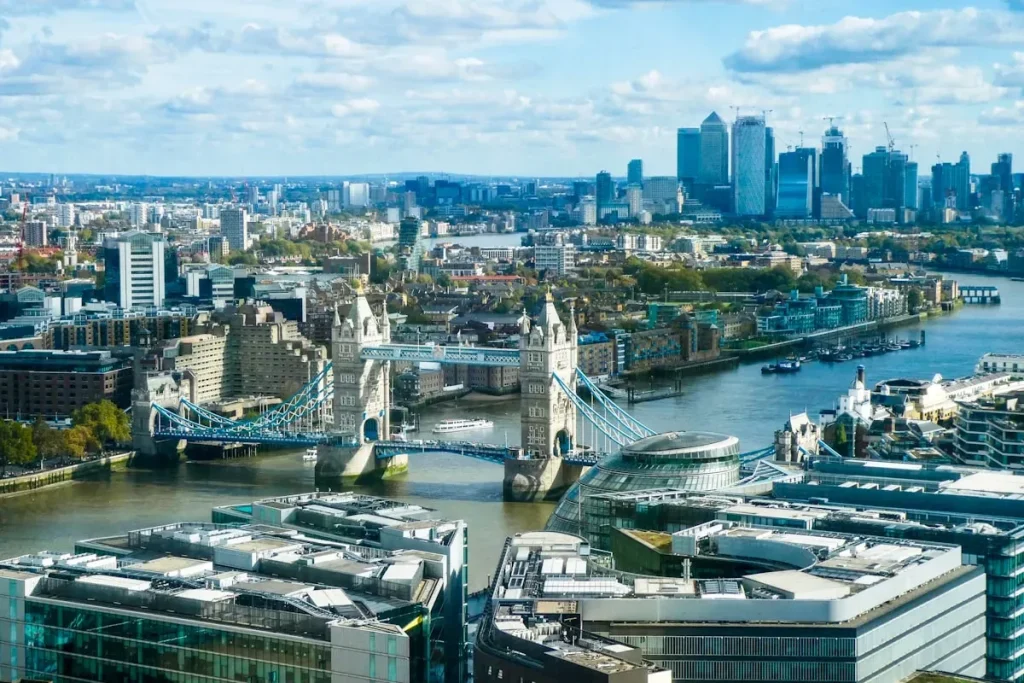The Online Safety Act has sparked a significant controversy across the UK, as thousands of citizens actively campaign against its stringent online regulations. Proponents argue that the legislation is designed to protect children by implementing age verification measures on adult websites, yet critics claim it threatens free speech and access to important content. Websites now require personal information such as credit card details or facial recognition for users to verify their age, limiting access to videos depicting essential social issues, like protests against homelessness or public sector strikes. This shift has prompted an unexpected surge in VPN usage among Brits seeking to sidestep these restrictions and protect their online privacy. As the petition against the Online Safety Act gains momentum, many are questioning whether this legislative effort will stifle civil discourse rather than foster a safer internet.
The recent legislation aimed at enhancing internet security, often referred to as the Online Safety Bill, has become a divisive topic among internet users and free speech advocates alike. While the initiative intends to enforce age verification protocols on adult content platforms to shield minors from inappropriate material, detractors argue that it imposes excessive internet censorship. The public outcry has led to widespread discussions about the ramifications of these measures on personal freedom and expression. As individuals resort to utilizing VPNs to evade these strict age checks, many fear that such regulatory approaches may inadvertently undermine the very principles of free speech that they aim to protect. As the debate continues, the implications of this Act remain at the forefront of conversations about responsible internet usage and the balance between safety and freedom.
The Impact of the Online Safety Act on Free Speech
The Online Safety Act has sparked considerable controversy, particularly regarding its perceived implications for free speech in the UK. Critics argue that the stringent age verification measures required by the Act, especially for adult content sites, infringe upon citizens’ rights to access information freely. This becomes evident as users find themselves unable to view political protest coverage or significant public speeches because they are unable or unwilling to disclose personal information for age verification. Such restrictions blur the lines between protecting minors and curtailing the rights of adults to access lawful content, raising serious questions about the true intentions and consequences of the Act.
Proponents of the Online Safety Act defend its necessity, citing the need to create safer online environments, particularly for children. However, the backlash is significant, with many perceiving these safeguards as a slippery slope towards internet censorship. The potential for misuse and overreach in enforcing age checks threatens to stifle social discourse, especially surrounding topics that are essential to democracy, such as political activism and public safety. This ongoing debate illustrates a growing tension between the need for online safety and the fundamental principle of free speech that underpins democratic societies.
Age Verification: A Necessary Measure or an Invasion of Privacy?
Advocates for the Online Safety Act often claim that age verification is crucial for safeguarding underage users from potentially harmful content online. Yet, the methods proposed raise significant privacy concerns, as they may involve sharing sensitive personal information such as credit card details or biometric data. Many users argue that such data handling practices could lead to breaches of privacy, making age verification more about data collection than children’s safety. The existence of advanced technology such as facial recognition software has led to fears that unauthorized parties could access sensitive information, making the safeguarding argument contentious.
The implementation of age verification measures has already caused a seismic shift in user behavior, with many opting to use virtual private networks (VPNs) to bypass these requirements entirely. The surge in VPN usage following the announcement of the Online Safety Act demonstrates a growing discontent among users who feel that their access to information is being unduly restricted. While VPNs provide a workaround, they also highlight a deeper issue regarding the balance governments must find between protecting users and maintaining user privacy and access rights. Users are increasingly tech-savvy and will continue to seek methods to navigate around restrictive measures, further complicating the effectiveness of age verification.
Public Reaction to the Online Safety Act and the Petitions
The public response to the Online Safety Act has been overwhelmingly negative, as evidenced by the extensive petition campaign that has gathered hundreds of thousands of signatures. This demonstrates a palpable sense of urgency among citizens who feel that their freedoms are at risk. Proponents of the petition argue that the Act, while perhaps well-intentioned, has been crafted too broadly and imposes excessive restrictions on free speech. As more people become informed about the potential ramifications of the Act, instances of organized protests and opposition continue to grow, showcasing a populace that is willing to stand against legislation they believe oversteps its bounds.
Political figures and advocates for civil liberties are using this momentum to call for a rethink of how online safety frameworks should operate. Many believe that adjustments must be made to create a more balanced approach that protects children while preserving individual freedoms and free expression. The call for repeal of the Online Safety Act echoes broader concerns about internet censorship and the erosion of rights. As the petition continues to gain traction, it’s evident that the conversation around online safety legislation will remain a contentious topic in British society, reflecting a classic struggle between safety, freedom, and the role of government oversight.
The Role of VPNs in Circumventing Online Restrictions
In the face of the stringent regulations introduced by the Online Safety Act, many users have turned to virtual private networks (VPNs) as a solution to bypass age restrictions and access blocked content. The rapid increase in searches for VPN services speaks volumes about the public’s frustration with the measures enacted, highlighting a pronounced desire to maintain their online freedoms. VPNs serve not only as a means to access content freely but also as a tool for preserving personal privacy, allowing individuals to navigate the internet without the constraints imposed by age verification requirements.
However, reliance on VPNs raises important considerations regarding internet access equity. While tech-savvy users can utilize these tools effectively, many individuals may not possess the knowledge or resources to do so. This digital divide could ultimately lead to a scenario where only certain segments of the population have continued access to unrestricted content. As the Online Safety Act continues to be a subject of heated debate, the solution may lie in finding alternatives that protect users without infringing on their rights or necessitating the use of circumvention tools like VPNs.
Alternatives to Age Verification and Their Implications
While the Online Safety Act mandates strict age verification processes for adult content, alternative measures have been proposed that may present a less invasive approach. Enhancing age assurance technologies that prioritize privacy could provide a solution, such as utilizing third-party age verification tools that do not require users to share sensitive personal data directly with providers. This could potentially alleviate public concerns surrounding data privacy while still fulfilling the intent of protecting minors from inappropriate content.
One potential alternative being explored includes the use of blockchain technology for age verification, which could allow users to verify their age without compromising their personal information. By creating a decentralized and secure method to certify age, the reliance on traditional verification methods could diminish, fostering both security and privacy. However, the implementation of such technologies poses its own challenges and would require legislative support and public trust to become a viable solution within the framework of the Online Safety Act.
A Historical Perspective on Age Verification Legislation
The discourse surrounding age verification is not new; historical context reveals that the UK government has grappled with the challenges of keeping children safe online for years. In 2016, a public consultation was conducted to address the implementation of age checks, which ultimately evolved into the provisions seen in the Online Safety Act today. This longstanding concern speaks to the complexity of crafting acceptable regulatory measures that balance safety with user freedoms. The postponement and eventual retraction of age verification measures from earlier legislation such as the Digital Economy Act highlight recurring difficulties lawmakers encounter when developing effective online frameworks.
The journey of age verification legislation also underscores the need for pre-emptive consideration of technological advancements. As society progresses and new technologies emerge, lawmakers must ensure that regulations remain relevant and effective. Therefore, revisiting past legislative attempts can provide insight into the challenges and failures of previous frameworks, which in turn may help inform future policy-making to create a balanced approach to online safety that accurately reflects societal values and technological capabilities.
The Future of Online Safety Legislation in the UK
Looking forward, the future of online safety legislation in the UK depends significantly on public perception and demand for change. The voices opposing the Online Safety Act are growing stronger, and as more individuals express their concerns, legislators may find it increasingly difficult to maintain the current framework. If the momentum continues, there may be an opportunity for a reevaluation of the law to incorporate public feedback and emerge with a more balanced approach that prioritizes both safety and free expression.
Additionally, the conversation around online safety will likely expand to cover emerging technologies and their influence on internet governance. As innovative solutions for age verification are developed, such discussions will inform the next generation of policies, ensuring they are adaptable and ready to face future challenges. Moreover, the increasing prevalence of digital platforms that prioritize user privacy may reshape the market dynamics, pushing governments to reconsider draconian measures in favor of more user-friendly alternatives. The task ahead will be to navigate these competing priorities in a way that upholds both the security of vulnerable populations and the fundamental rights of individuals.
Frequently Asked Questions
What is the Online Safety Act and how does it affect age verification measures?
The Online Safety Act is legislation designed to enhance online safety, particularly for children, by mandating age verification measures for adult content websites. This law requires these sites to confirm users are over 18 years old, often demanding sensitive information like credit card details or personal identification, leading to concerns over privacy and access to legitimate content.
How does the Online Safety Act impact free speech in the UK?
Critics argue that the Online Safety Act stifles free speech by imposing stringent controls that limit access to various online content, including political expression and protests. The requirement for age verification can block users from viewing important discussions and materials, thereby restricting their ability to engage in civil discourse.
What are the potential risks of age verification technology under the Online Safety Act?
Age verification technology, as mandated by the Online Safety Act, raises concerns about sharing sensitive personal data with third parties, such as date of birth and identity. Methods like photo-ID matching and facial recognition may compromise user privacy, despite claims from companies that these systems are safe and privacy-preserving.
Why are many users turning to VPNs in response to the Online Safety Act?
With the implementation of the Online Safety Act, users have increasingly turned to virtual private networks (VPNs) to circumvent age verification restrictions. By altering their IP addresses to appear as if they are accessing the internet from outside the UK, users can bypass the stringent measures in place, allowing them to access blocked content more freely.
What has the government said in response to petitions against the Online Safety Act?
In response to petitions calling for the repeal of the Online Safety Act, which has gained over 380,000 signatures, the government has stated it has no plans to repeal the legislation. They emphasize that the Act aims to protect free speech and include proportional measures to ensure a safer online environment, particularly for children.
How does the Online Safety Act classify harmful content, and what implications does this have?
The Online Safety Act classifies harmful content as material that poses risks to children and society. While intended to combat illicit content, this classification can inadvertently impact access to essential discussions and expressions, including protests and political content, leading to a debate on the balance between safety and freedom.
What methods can adult websites use for age verification according to the Online Safety Act?
The Online Safety Act suggests several methods for age verification, including photo-ID matching, facial age estimation, credit card checks, and email age estimation. These methods aim to ensure users are over 18 while sparking debates about privacy and accessibility on the internet.
What are the alternatives to traditional social media platforms regarding age verification?
Alternatives to traditional platforms like X, such as Bluesky, are also implementing stringent age verification checks. Users cannot send direct messages until they verify their age, which continues to raise concerns about accessibility and the potential infringement on free speech following the Online Safety Act.
How do experts view the implications of the Online Safety Act on online discourse?
Experts express concern that the Online Safety Act’s strict measures may have ‘catastrophic’ implications for free speech online, as they can hinder access to important discussions and information. The difficulty in verifying age could prevent users from engaging with content critical for public awareness and discourse.
What are the arguments for and against the Online Safety Act regarding online content access?
Proponents of the Online Safety Act argue it protects children from harmful content and illegal activities, while critics counter that it unnecessarily restricts access to vital information and stifles free speech. The Act’s approach to age verification has drawn significant pushback from users and advocates for civil liberties.
| Key Point | Details |
|---|---|
| Petition Against Online Safety Act | Thousands of Brits are calling for the repeal of strict online safety measures. |
| Age Verification Measures | Adult content websites must now verify users are over 18, affecting access to various online content. |
| Impact on Free Speech | Critics argue these measures stifle free expression by blocking access to important content like political protests. |
| VPN Usage Increase | Usage of VPNs has surged by over 700% post-announcement as users seek to bypass age restrictions. |
| Government Stance | The government maintains it has no plans to repeal the Act, emphasizing the need for a safer internet. |
| Ongoing Safety Concerns | The Online Safety Act’s measures are criticized as excessive and a threat to civil discourse. |
| Technological Challenges | Some methods, like facial ID scans, are being circumvented by technology, raising privacy concerns. |
Summary
The Online Safety Act has ignited significant debate in the UK, as thousands rally to demand its repeal, citing concerns over free speech and access to diverse content. While the government claims these stringent measures aim to protect children and regulate harmful content online, critics highlight their broader implications on civil discourse and expression. As the landscape continues to evolve, the tension between safety and freedom of expression remains a crucial discussion point for policymakers and citizens alike.



